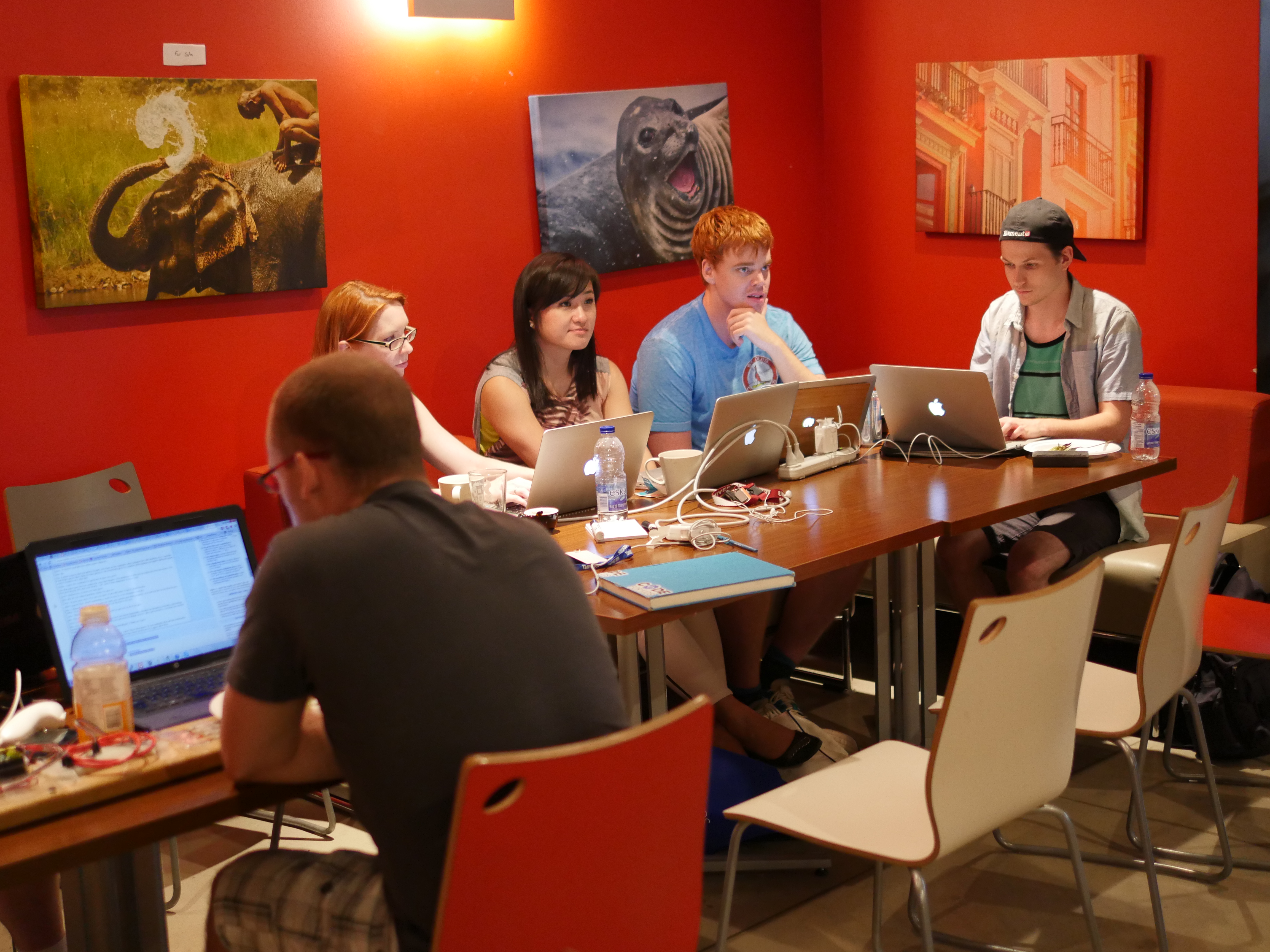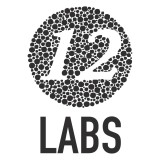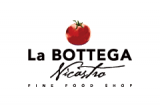
Schedule for Friday, June 27th
| Time | Friday, June 27th |
|---|---|
| 7:00pm | Event begins: snacks and drinks to be served |
| 7:30pm | Project Pitches |
| 8:00pm | Team formation |
| 8:30pm | Let the hacking begin! |
| 10:00pm | Lounge closes for the evening |
Schedule for Saturday, June 28th
| Time | Saturday, June 28th |
|---|---|
| 9:30am | Coffee and breakfast served |
| 12:00pm | Lunch |
| 6:00pm | Dinner |
| 9:30pm | Venue closed for the night |
Schedule for Sunday, June 29th
| Time | Sunday, June 29th |
|---|---|
| 9:30am | Breakfast and coffee served |
| 12:00pm | Lunch |
| 1:30pm | Final presentations |
| 2:30pm | Hackathon ends |
Video of the presentations: https://www.youtube.com/watch?v=dZ4B4xDBvbA
Recap
Last weekend, June 28-29, marked Ottawa’s third instalment of Random Hacks of Kindness (RHoK) (http://rhok-ottawa.ca/).
The first order of business is to answer “So, what is it?”. RHoK is a hackathon for making the world a better place by developing practical, open source technology solutions to respond to some of the most complex challenges facing humanity. RHoK, an international initiative (in over 30 countries), happens concurrently twice a year in June and December. Our Ottawa chapter operates wholly on its own, while maintaining the vision and mission of the global organization.
Now before I dive into how it works, I want to venture an important point of clarification for hackathons: it’s not just for developers. In fact, many hackathons welcome and actually need a diverse group of individuals. For example, at RHoK this weekend, we had developers of all types, graphic designers, UX designers, community managers and an anesthesiologist. Of course there are also the organizations that benefit. Everyone is welcome.
What’s really exciting about RHoK is that we pair participants with real organizations that have real challenges. As a result, it’s a great environment…but there is a lot that goes into the event. Recruiting organizations is actually tougher than it sounds. While they get the benefit of collaborating with bright and talented minds, simply providing a venue and people aren’t enough. The organizations need to generate a project that fits the bill. The project or objective must: have a clear problem and direction but still leave lots of room for creative problem solving; be able to be solved in a weekend; be applicable on a larger scale to other organizations; and, be engaging and rewarding to the participants — the organizations tend to be one of the key selling features in getting participants to join.
We’ve yet to have any real problems in finding participants as we’ve sold out in June and last December. But, that’s in no small part due to the outreach we do and the great opportunity we are creating for people. We reach out to a host of developer groups across the city, encourage past participants to join, post on our professional and corporate networks, and rely on the participating organizations to also spread the word.
Participation costs $5 and the reason for charging this amount is really only to encourage attendance if you register. To put this in perspective, and thanks to the many sponsors who contributed, RHoK participants ate like kings all weekend for that $5. Not to mention, they got some pretty sweet laser-etched mason jars as a take-away.
This year we capped out at 45 participants. On the organization side, we had Oxfam Amnesty Code for Kids Art Engine Ladies Learning Code and Mustaches for Kids. The projects included:
Projects
-
View Project
Mustaches for Kids
Mustaches For Kids: The goal was to build a third-party fundraising platform that makes it easier and much more compelling for participants — with great images, fundraising tracking & analytics,…
-
View Project
Oxfam
Oxfam Canada is working with a coalition of organizations on putting together a common campaign calling for a national debate to be held during the 2015 elections on women’s issues/women’s…
-
View Project
Ladies Learning Code
After a successful hackathon last time, Ladies Learning Code has a working job board, but it still needs some work. The goal is to improve what has already been built.
-
View Project
Art Engine
Hackerspace, makerspace and libraries all share a common problem: How do you manager reservations for limited resources? Right now there aren’t any good open source tools to do this, but…
-
View Project
Code For Kids
Build an online intro to ruby much like code school, except focused exclusively on children. Help build out curriculum and tech stack.






Sponsors & Partners










